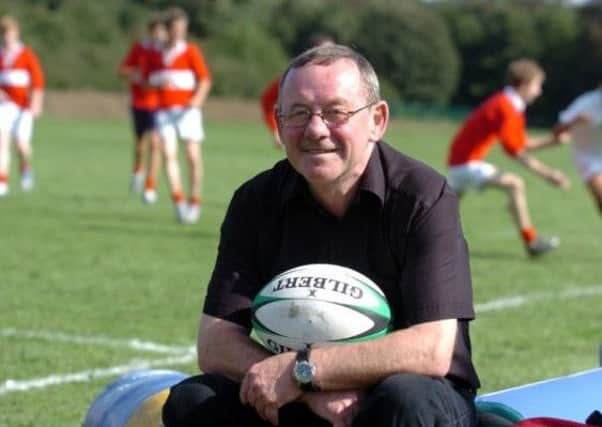Obituary: Roger Millward Mbe, rugby league player


Roger Millward MBE,who has died aged 68, was one of the outstanding rugby league players of his generation. Despite his diminutive stature, 5ft 4ins tall and weighing in at 10 stones “dripping wet” – his own words – he excelled in one of the most physically demanding sports of all. Holder of a total of 46 caps, 29 for Great Britain and 17 for England, his name will always be associated with Hull Kingston Rovers, for whom he scored a record 207 tries and kicked 607 goals in 406 games.
He has been described as the club’s greatest ever player,captain and coach and was a favourite with the fans, who christened him Rodger the Dodger. His Rovers career highlight was captaining them to a Challenge Cup win over local rivals Hull in 1980 at Wembley.
Advertisement
Hide AdAdvertisement
Hide AdPlaying for Great Britain,the highlight was his contribution to winning The Ashes series in Australia in 1970, the last British team to do so. Once his playing days were over he became a successful coach, principally with Hull KR before a short spell at Halifax. In recognition of his contribution to the sport he was awarded an MBE in 1983, one of the first rugby league players so honoured, and in 2000 was inducted into the sport’s Hall of Fame.
A goalkicking stand off blessed with a great burst of pace, Millward loved the game from a young age and dreamed of making a career in it. Brought up in Castleford in the heart of rugby league country, he was an avid supporter of his local team where his heroes were Alan Hardisty and Keith Hepworth. When he signed for Castleford aged 16 for a £200 fee, he could scarcely believe he was rubbing shoulders with those two, though their presence meant he initially played on the wing. He made his debut for Castleford in September 1964 against Dewsbury Celts and by 1965 had secured the stand-off berth, helping Castleford win the inaugural BBC 2 Floodlit Trophy that year.
Aged 18, he earned his first Great Britain cap at stand off against France in Perpignan, which he later recalled as an “unbelievable experience”, particularly as he had never flown before.
Although content with his home town team he was called in from training one day to be told that Hull Kingston Rovers wanted him and on 8 August 1966 he signed on the dotted line in what he described as “the best move I ever made”. The transfer fee was £6,000, a significant sum then and so began a 25-year association with the club.
On the international front Millward continued to make his mark particularly in Australia in 1970, part of a three-month tour including three Tests against Australia and three against New Zealand. Millward did not play in the first Test in Brisbane when the British lost heavily.
Selected for the second Test at the Sydney Cricket Ground, he remembered “really looking forward to playing there and, as a cricket fan, being inspired in the dressing room by the English cricketers’ photos on the walls.”
According to one report, Millward played “as near the perfect stand off game as was possible”, scoring two tries and kicking all seven attempts at goal, in front of a crowd of 77,000, a win he thoroughly enjoyed. In the deciding Test, again at the Sydney Cricket Ground, he once more played outstandingly, scoring the final try to secure victory and the series success.
The tour also included games in Papua New Guinea where he recollected police advice not to stop if involved in a driving accident but to go directly to the police station, as there was a risk the other motorist would shoot you.
Advertisement
Hide AdAdvertisement
Hide AdIn 1980 he led Rovers to their first ever Challenge Cup success in front of 95,000 fans, defeating Hull 10-5, and notched a dropped goal.
Millward displayed tremendous bravery as he played on with a broken jaw sustained in the 13th minute.
He commented afterwards: “I felt not right, my bone was out of place. Fortunately a few seconds later I went to tackle Hull’s Steve Norton and my jaw caught his knee, which clicked it back into place and I carried on. I was in cuckoo land for about 20 minutes but my half back partner Alan Agar did a great job while I recovered.”
Another broken jaw a year later spelled the end of his playing days as he began coaching Rovers for 11 years, during which time he led them to two Premiership titles among other successes.
Millward had great leadership qualities, always played and coached the game in the right spirit and was a great ambassador for the sport. In tribute to him, Hull KR have retired his No. 6 shirt.
Until a few years ago he was site manager at Royds School in Leeds where he was highly regarded and very popular. Latterly he lived in Kippax and is survived by wife Carol, daughter Kay, son-in-law John and grandson Charlie.